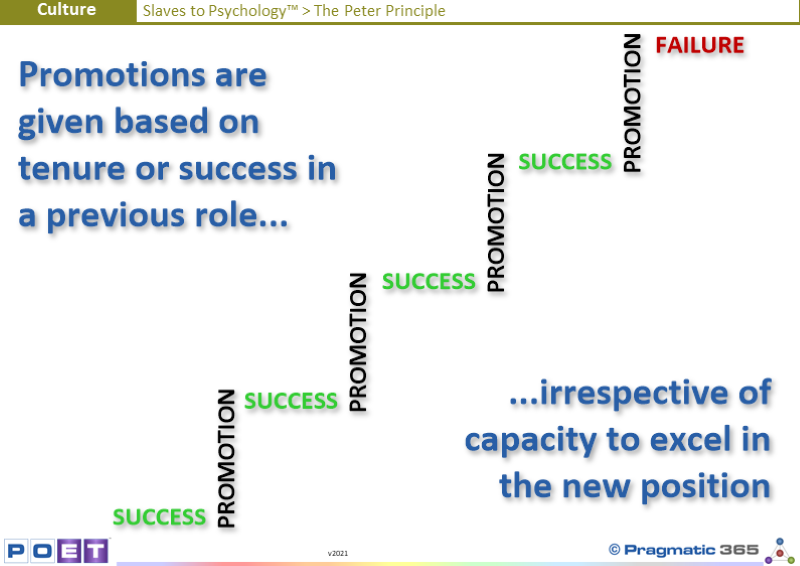
The Peter Principle (developed by Laurence J Peter and published
by William Morrow and Company in 1969) says that people in any hierarchy tend
to rise to their “level of incompetence”, because the skills required to make
someone good in one job, are not necessarily the skills required for another
job. For example, a good engineer would probably be a bad manager, and a good
manager would probably be a bad engineer.
...to read more, please Login or Register